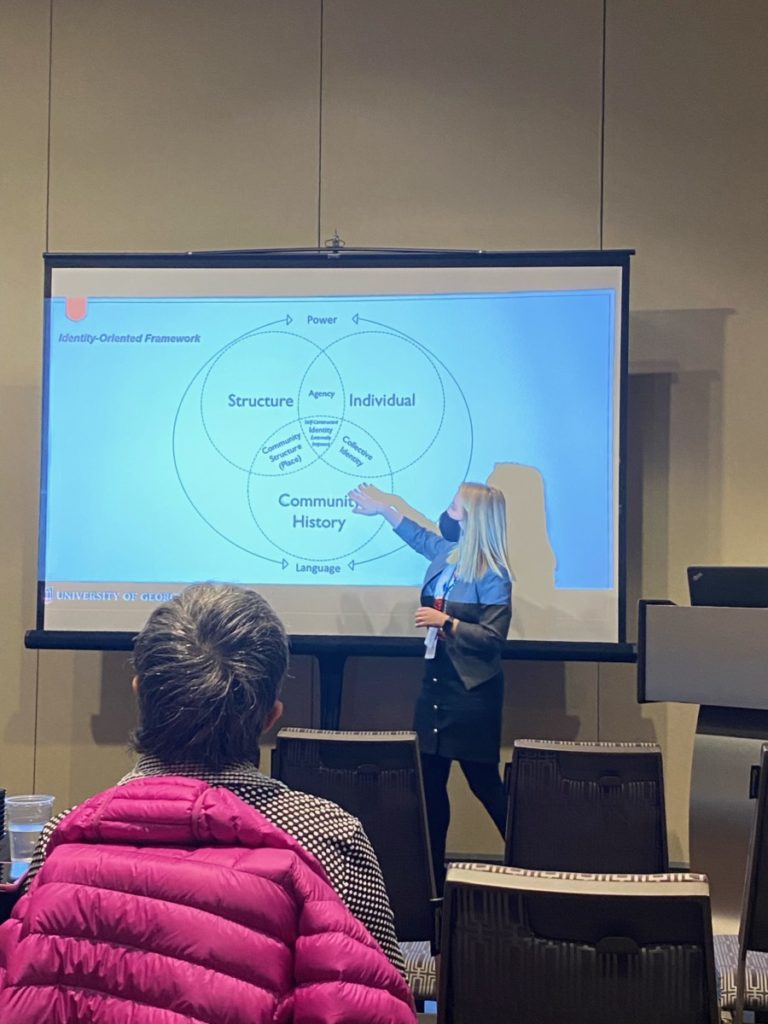
When working in rural communities, often community-based public health practitioners enter in assuming most community members are more similar than they are different. This can minimize the rich social, cultural, and identity diversity present within rural areas. Katie Sanders, Barbara Worley, Alexa Lamm, and Abigail Borron presented research examining rural community development work related to public health promotion from a Centers for Disease Control and Prevention grant at the 2022 Southern Rural Sociological Association Conference in New Orleans.
Identity-Oriented Frameworks for Community Development Work
In two oral presentations, Katie Sanders presented preliminary results from a pilot study looking at how participants express their identities within a rural public health promotion intervention. Following the pilot results, she presented a framework for using identity-oriented culturally-responsive evaluation in rural community development work.
Sanders explained that working within the identity-oriented framework could help increase the sustainability, efficacy, and cultural-responsiveness of programming through highlighting and supporting community-based identity work.
Increasing engagement in rural public health development work is a significant challenge, but focusing programs around the rich differences in rural communities can lessen unintended marginalization of specific community voices.
New Methods for Rural Capacity Development
In an oral presentation, Katie Sanders and Barbara Worley presented results from a study looking to generate solutions for rural health development in Georgia. They presented a hybrid methodological framework building off an evaluation approach – appreciative inquiry – that can help identify patterns of assumptions within a community that drive project trajectories.
Sanders and Worley presented three models that captured the drivers of the community project: one focused on social ties, one focused on infrastructure, and one focused on worldviews, all of which presented contradictory and complementary modes of engaging in community development. Through bringing the models in conversation with one another, Sanders and Worley explained, community development practitioners can find synergistic solutions using more holistic approaches.
This meeting was held in conjunction with the Southern Association of Agricultural Scientists annual meeting. To learn about additional Lamm Lab presentations held at this convergence of conferences, see our post on the National Agricultural Communications Symposium, Southern Region Meeting of the American Society for Horticultural Sciences, and the Southern Region Meeting of the American Association for Agricultural Education.